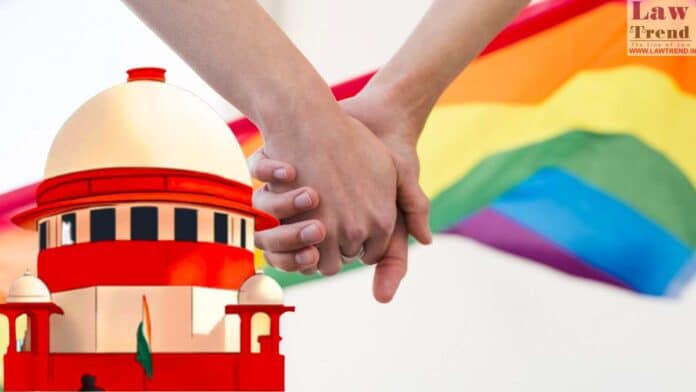Legal experts on Tuesday said the Supreme Court’s order on the issue of granting legal recognition to same-sex marriages, though below expectations, is a welcome step forward in the law’s march towards recognising the rights of persons from the LGBTQIA++ community.
A five-judge Constitution bench of the apex court unanimously refused to accord legal recognition to the union of same-sex couples in the country, but recognised equal rights for queer people and their protection.
“Obviously, it falls below expectations,” senior advocate Sanjoy Ghose said, quickly adding that the top court’s landmark ruling nonetheless finds that the community’s demand for legal recognition to their union as a civil union or marriage is not frivolous and rather a “baby step” in the right direction.

“It is one step ahead of the stage where you (first) decriminalise homosexuality and now, you are moving towards recognising (their union) … the effective orders that they passed fall far short and far below expectations. Something positive (is that) at least all five (judges) were united on the fact that this is not a frivolous demand,” Ghose said.
City-based lawyer Utkarsh Singh echoed Ghose’s view on the ruling failing to live up to the hopes of the LGBTQIA++ community and said the issue is now a “lost cause”.
Singh, who has represented in courts same-sex couples seeking refuge from family threats, said “despite all the good words, this judgment makes no significant impact to the plight of the LGBTQIA++”.
He said the majority of the directions issued on Tuesday for the protection of gay couples already exist in view of the Supreme Court’s ruling in the Shakti Vahini case.
“Mere issuance of guidelines is no solution as the guidelines (issued in the Shakti Vahini case) are yet to be complied with. Only Delhi has complied…. Mere liberal interpretation of the SMA (Special Marriage Act) could have helped the cause without delving into personal laws. The issue is now a lost cause,” Singh said.
The Supreme Court, in its decision, held that it is within the Parliament’s ambit to change the law for validating the union of same-sex couples.
Chief Justice of India D Y Chandrachud, however, directed the Centre, states and Union territories to take steps to sensitise the public about the rights of queer people and ensure that sex-reassignment surgeries are not performed on inter-sex children at an age when they cannot fully comprehend the consequences.
He also directed police to conduct a preliminary enquiry before registering an FIR against a queer couple over their relationship.
Sharing her optimism over the apex court’s views, senior advocate Geeta Luthra said she believes in India’s progressiveness and that the LGBTQIA++ community would soon be bestowed with the same marital rights as heterosexual couples.
“I believe that India is progressive. I believe that we give protection to minority rights and champion the rights of the underdogs or the underprivileged,” Luthra said as she hailed the “very considered views” given by each of the five judges.
Also Read
“It may be a small number of people that may want this right, but if it is not harming others and if it is helping them, and if it has already been acknowledged as a part and parcel of life … and as long as it is consensual, I feel that the time is not far away when such people should be given all the rights and privileges which marriage carries with it,” she added.
Speaking on whether there would be any effective change on the status of same-sex couples with the matter being left to the government, Ghose said while he does not expect “miracles”, “there is no looking back now”.
“Everyone has agreed and is on board that the LGBTQ people have rights and everyone is on board that the existing system today is not sufficient and does not cater to their expectations and needs. The only divergence is how to go ahead,” he said.
“There is no looking back from the fact that this is a genuine, legitimate demand. It is a baby step in the march of the law,” the senior lawyer said.







